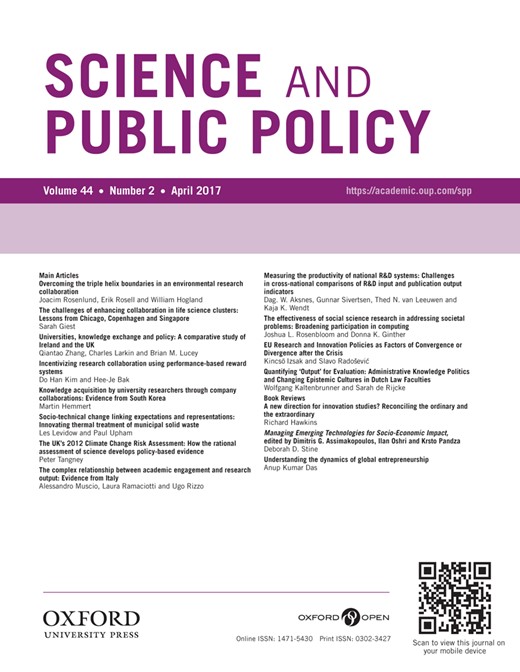-
Views
-
Cite
Cite
Wolfgang Kaltenbrunner, Sarah de Rijcke, Quantifying ‘Output’ for Evaluation: Administrative Knowledge Politics and Changing Epistemic Cultures in Dutch Law Faculties, Science and Public Policy, Volume 44, Issue 2, April 2017, Pages 284–293, https://doi.org/10.1093/scipol/scw064
Close - Share Icon Share
Abstract
In this article, we study the practices through which scholars in advanced administrative positions in Dutch law faculties quantify the publications of their research groups for evaluation purposes. Our aim is to go beyond studying seemingly one-way effects of evaluation modalities on academic knowledge production and instead look at the ‘micropolitics’ of indicator use, that is, the specific ways in which researchers embed indicators in their everyday practices. Metrics of raw publication output provide seemingly clear-cut evidence about academic performance. However, our empirical material shows that such information can hide strikingly diverse quantification practices. Rather than passive reactions to externally-imposed administrative procedures, many of these practices constitute proactive attempts of individual researchers to pursue competing normative and epistemic agendas. Quantitative indicators to measure publication activity thus do not automatically resolve discussions about the nature of academic performance, but relocate them to an administrative setting characterized by specific rules of engagement.



